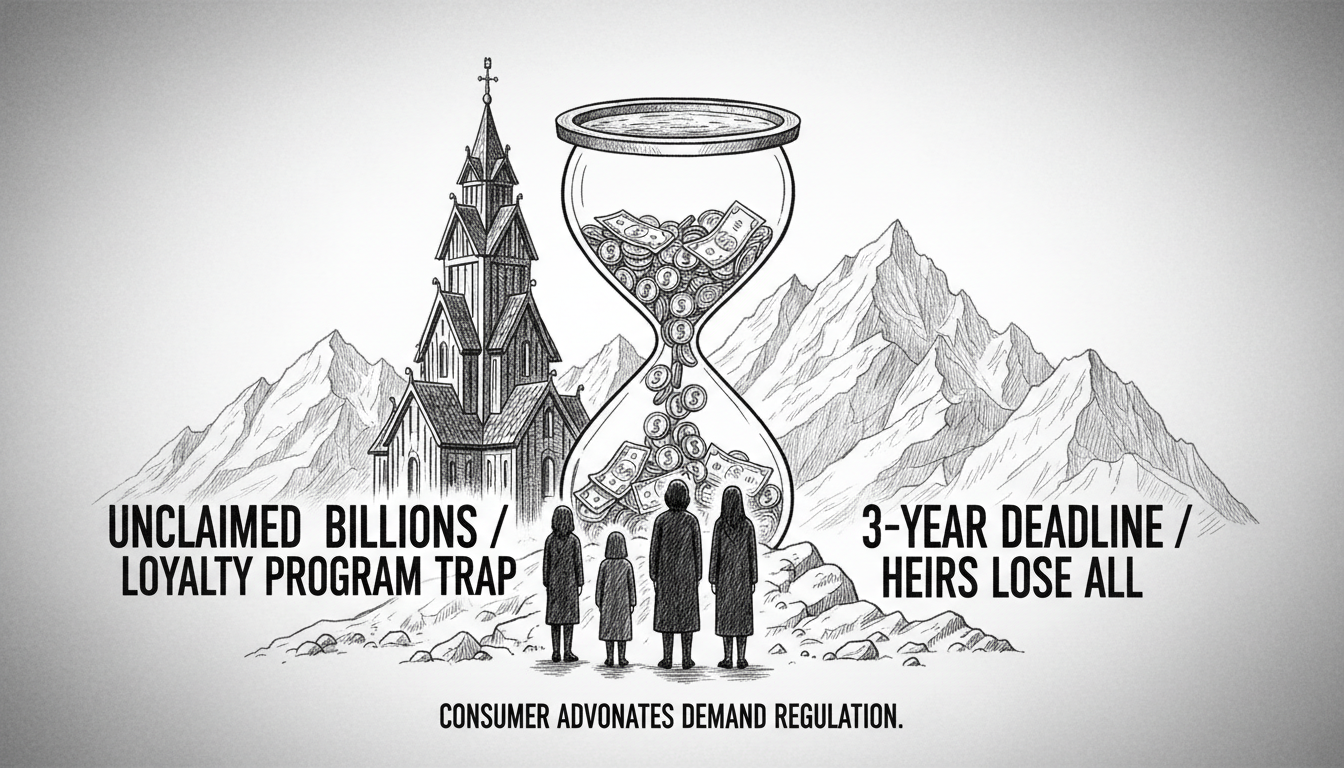Millions of Norwegians participate in grocery loyalty programs like Trumf, Coop, and Rema 1000, but few consider what happens to their accumulated bonuses and rewards when they die. New research reveals that billions of kroner remain unclaimed each year because heirs don't know how to access these funds.
Three million Trumf members collectively saved 1.9 billion kroner in bonuses last year. Four million Coop members received 1.41 billion kroner in purchase dividends and bonuses during the same period. Rema 1000's app has three million users, though the company doesn't disclose total accumulated bonuses.
When customers die, their heirs must actively claim these funds. None of the major grocery chains have systems that automatically detect deaths and transfer benefits to family members. This means billions of kroner potentially go unclaimed annually.
Marit Johnsrud Strømdal, who works at a funeral home in Kongsvinger and Eidskog, first questioned this system several years ago. She helps hundreds of bereaved families through funeral processes and noticed that loyalty program benefits often go overlooked.
Heirs must present valid inheritance certificates to transfer bonuses from Trumf. Coop requires heirs to contact them directly and document their right to purchase dividends and deposits. Rema 1000's marketing director confirmed they depend on relatives initiating contact to use deceased customers' bonuses.
There's no automatic access to accumulated bonuses or dividends from any of these major grocery chains. Strømdal decided to post information about this issue on her funeral home's website and now informs all clients they should check for unclaimed benefits.
The reactions from hundreds of relatives have been consistent. People are completely surprised. They often say they never knew about these benefits. During dramatic grief processes, loyalty programs aren't their first concern. Many also lack overview of what programs their deceased relatives participated in.
People might not consider that a parent visited the store every week and earned substantial bonuses they're entitled to claim. The current generation of seniors typically participates in multiple loyalty programs, meaning significant money could be involved.
Older people might not know how to withdraw their bonuses or funds. In one case, a customer retrieved 15,000 kroner from their deceased mother's Trumf account. This money often helps cover funeral costs, final Christmas gifts for grandchildren, electricity bills, or other expenses the deceased would have wanted to assist with.
Calculations show approximately 17 million kroner remains in deceased Norwegians' Trumf accounts annually. For Coop, the figure exceeds 11 million kroner. These estimates are based on member numbers, average balances per customer, and Norwegian mortality rates.
Unclaimed bonuses eventually benefit the companies themselves. Trumf's privacy policy states that outstanding bonuses revert to the company if membership ends due to inactivity. Heirs must present valid inheritance certificates within three years from the last earning point, or the money becomes Trumf's property.
Rema 1000 bonuses are only valid for three years from the earning date. Coop maintains a different system where funds remain on the deceased member's account until heirs close the membership, potentially for up to 20 years.
Coop attempts to inform heirs by automatically sending letters to the last known address of deceased members. These letters explain how to close memberships and accounts. They're sent monthly to members reported dead since the previous round, earliest 14 days after the death date.
Strømdal appreciates Coop's effort but questions its effectiveness. There's no guarantee anyone lives at the deceased's address, and Coop letters might be perceived as advertising and discarded. The current system ultimately benefits corporations when heirs don't know how to claim dividends.
Even though Coop maintains withdrawal opportunities longer, the cooperative still benefits from managing money in deposit accounts. In Trumf's case, money becomes company property after just three years. The same applies to earned bonuses at Rema 1000.
The Consumer Council believes the payment system to heirs needs better regulation. Given the substantial economics involved, authorities must intervene with legal changes and regulations. All types of funds, including purchase dividends, should be included in digital inheritance systems.
The Digitalization Directorate confirms their work on Digital Inheritance Service identified that many heirs miss purchase dividends and bonuses left by the deceased. They want to solve this challenge through their service, but cannot confirm when they'll start making purchase dividends and bonus schemes available to heirs since the system remains under development.
All three grocery chains confirm they don't currently report to Digital Inheritance but are positive about considering the possibility once the system is operational.
The current system essentially rewards companies when grieving families lack the energy or knowledge to claim what's rightfully theirs. While corporations attract customers with promises of savings and benefits, they make little effort to ensure these benefits reach heirs when customers die. This creates a significant wealth transfer from consumers to corporations during vulnerable moments when families least expect financial complications.

